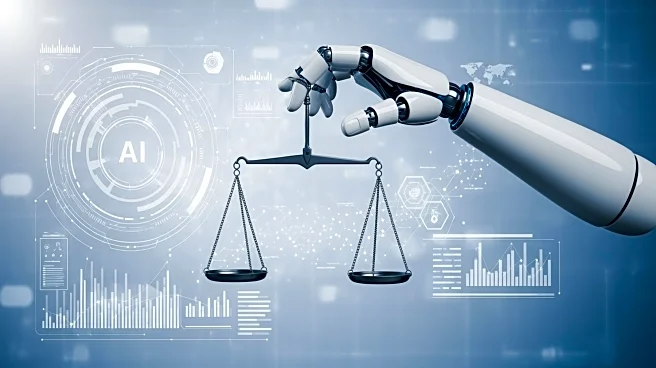What's Happening?
HR executives are being advised to remain vigilant about potential friction caused by the implementation of AI and technology within organizations. While AI offers significant benefits in terms of automation
and efficiency, it can also lead to hidden sources of employee dissatisfaction if not managed properly. Friction, similar to micro-aggressions, can result from technology that complicates processes or adds unnecessary burdens on employees. HR departments are encouraged to weigh the benefits and costs of new technology, partner with IT for effective implementation, and establish feedback loops to address employee concerns.
Why It's Important?
Understanding and mitigating friction in AI implementation is crucial for maintaining employee satisfaction and productivity. Unchecked friction can lead to decreased morale, reduced loyalty, and increased turnover, impacting organizational performance and culture. By addressing these issues proactively, HR executives can ensure that technology enhances rather than hinders the work environment. This approach aligns with broader trends towards employee-centered practices and the integration of technology in ways that support human capabilities. For businesses, reducing friction can lead to improved efficiency, innovation, and competitive advantage.
What's Next?
Organizations may invest in training programs to help employees adapt to new technologies and understand their benefits. HR departments could develop strategies to monitor and address friction, such as regular surveys and open forums for feedback. Collaboration with IT teams will be essential to ensure technology is user-friendly and aligns with organizational goals. As AI continues to evolve, HR executives may explore new models of work that balance automation with human interaction, fostering a culture of collaboration and continuous improvement. Research into the impact of AI on employee satisfaction may also inform future HR policies and practices.
Beyond the Headlines
The integration of AI in the workplace raises ethical questions about the balance between technology and human interaction. It challenges traditional notions of work and productivity, prompting discussions about the role of AI in shaping organizational culture. As businesses navigate these changes, there may be increased focus on transparency and accountability in technology implementation. This shift could influence public policy, encouraging regulations that protect employee rights and promote ethical use of AI. For society, the conversation around AI and work may lead to broader reflections on the future of employment and the value of human contributions.









